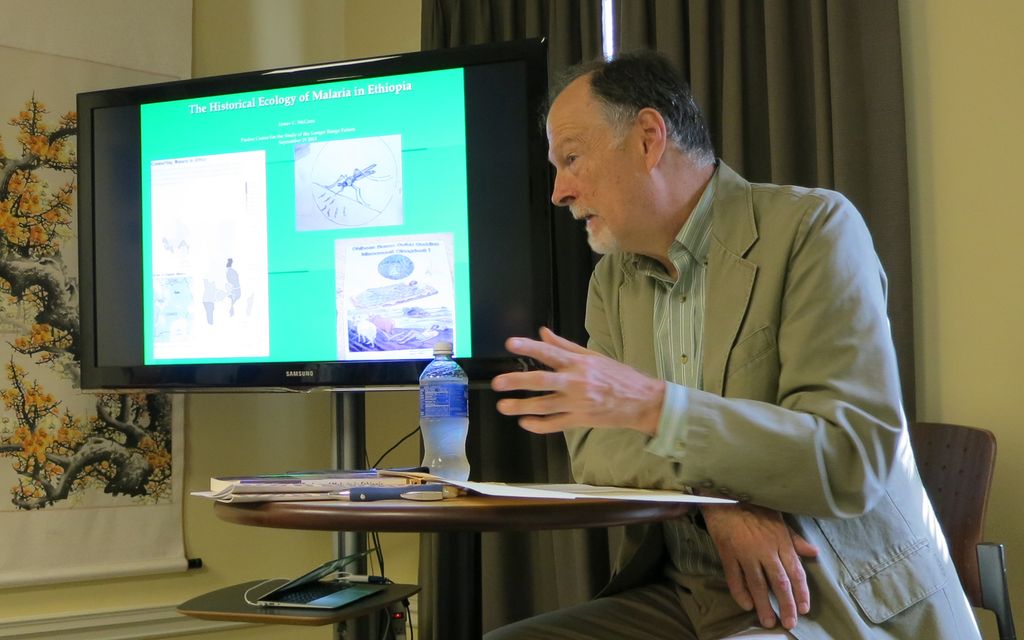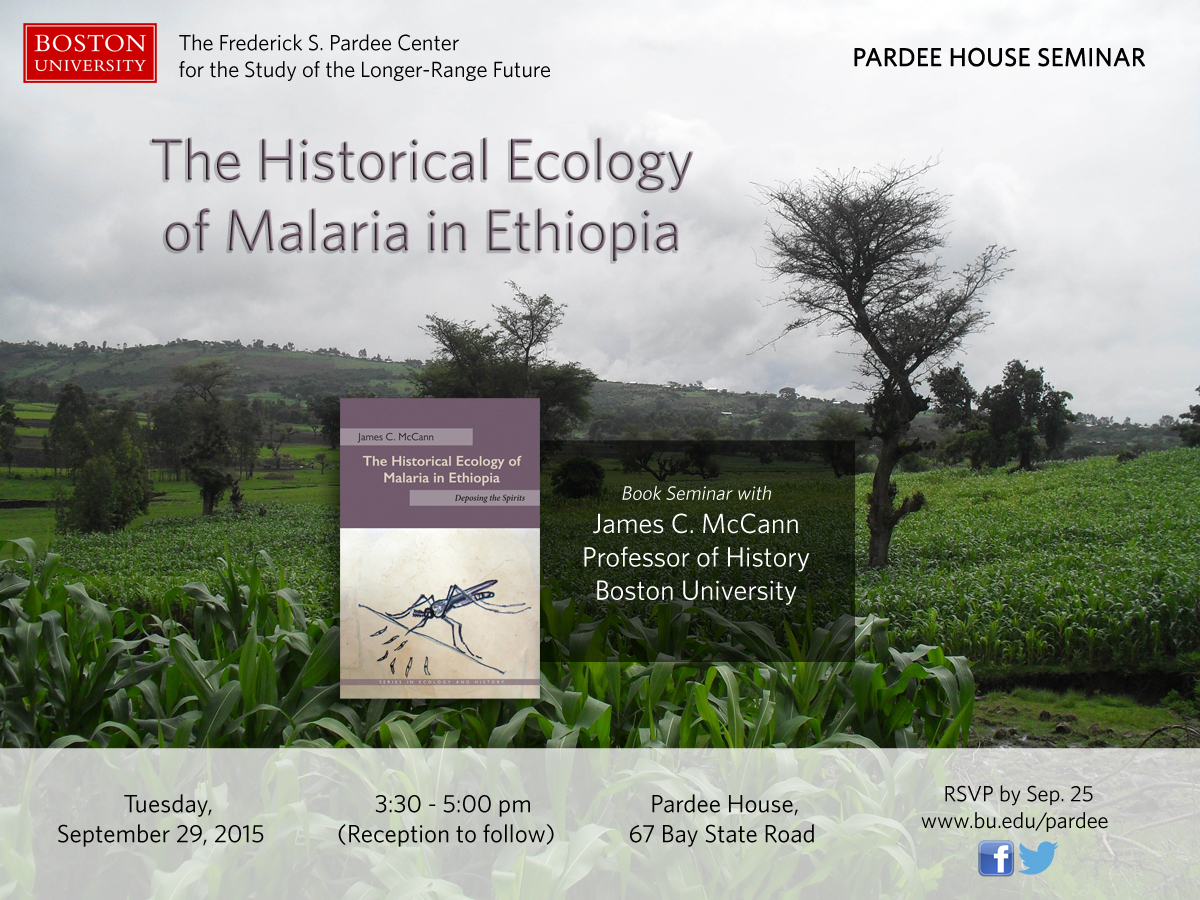James McCann Speaks on Historical Ecology of Malaria in Ethiopia

Prof. James McCann, a well-known scholar on the history of the food, ecology, and agriculture of Africa, spoke about his recently published book, The Historical Ecology of Malaria in Ethiopia: Deposing the Spirits, at a seminar hosted by The Frederick S. Pardee Center for the Study of the Longer-Range Future on Tuesday, September 29.
The book is an outcome of a five-year research project funded by the Rockefeller Foundation that Prof. McCann led in collaboration with the late Dr. Andrew Spielman of the Harvard School of Public Health. It describes the interplay between malaria and the local ecology and culture of the Ethiopian highlands, and attempts to control the disease there by malaria control specialists.
 Prof. McCann’s talk focused on the “ecological context” of malaria in Africa, explaining that single-strand approaches have repeatedly failed because those solutions do not fully account for the complexity of the disease. Prof. McCann drew on several examples of unsuccessful approaches in Ethiopia. He called the use of bed nets “demonstrably ineffective,” because despite having been distributed in large quantities by USAID, the vast majority are not used for their intended purpose in Ethiopia (for example, they have been used to tether animals and catch fish). Drug therapy and treatment has also failed due to the prevalence of substandard and counterfeit drugs in Africa, and the prospects for developing a vaccine for a protozoic disease like malaria are very slim. DDT, which was never banned in Ethiopia, has also become futile as mosquitos have adapted. In just over 50 years, the effectiveness of DDT spraying programs in Ethiopia has fallen from 99 percent to 1 percent.
Prof. McCann’s talk focused on the “ecological context” of malaria in Africa, explaining that single-strand approaches have repeatedly failed because those solutions do not fully account for the complexity of the disease. Prof. McCann drew on several examples of unsuccessful approaches in Ethiopia. He called the use of bed nets “demonstrably ineffective,” because despite having been distributed in large quantities by USAID, the vast majority are not used for their intended purpose in Ethiopia (for example, they have been used to tether animals and catch fish). Drug therapy and treatment has also failed due to the prevalence of substandard and counterfeit drugs in Africa, and the prospects for developing a vaccine for a protozoic disease like malaria are very slim. DDT, which was never banned in Ethiopia, has also become futile as mosquitos have adapted. In just over 50 years, the effectiveness of DDT spraying programs in Ethiopia has fallen from 99 percent to 1 percent.
Prof. McCann explained that only by recognizing the complexity of malaria will we be able to control its transmission. Specifically, he noted the fact that maize is a rapid accelerant of malaria, as pollen-fed larva survive at 9.5 times the normal rate. By taking steps to combat the disease at a local — rather than regional — scale, Prof. McCann explained that vulnerable communities will be better positioned to adapt to the ever-changing complexity of malaria.
Much of the final research and writing of the book was conducted during and after Prof. McCann’s time as Director, ad interim, of the Pardee Center between 2011 and 2013. The Pardee Center produced a short documentary about the project.
